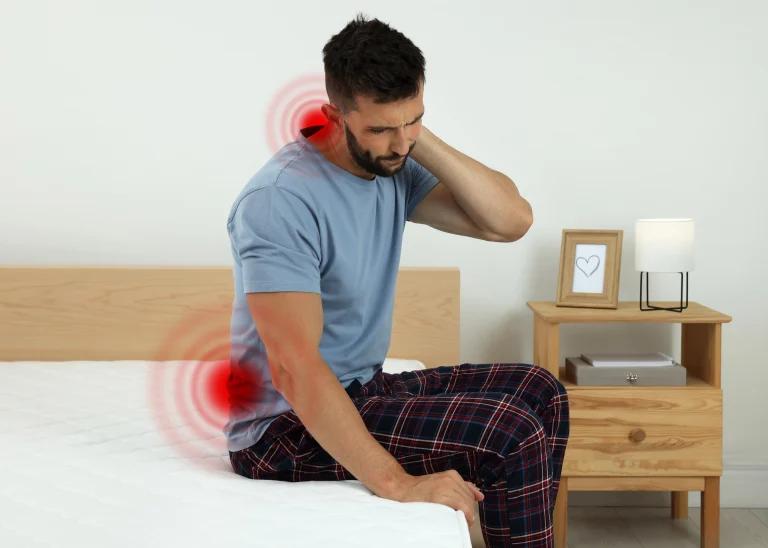Pregabalin is a prescription drug designed for the treatment of various neurological conditions such as epilepsy, and generalized anxiety disorder. Its efficacy and speed of action makes it a topic of interest for both patients and healthcare professionals.
What is pregabalin?
Pregabalin is a medication mainly used to manage various forms of neuropathic pain. This can occur in multiple body parts such as the arms, hands, fingers, legs, feet, or toes, typically due to conditions like diabetes, or following an outbreak of shingles, known as postherpetic neuralgia (PHN). Additionally, pregabalin is effective in treating fibromyalgia, a chronic condition characterized by pain, muscle stiffness, and fatigue, as well as epilepsy and partial-onset seizures in both adults and children.
Mechanism of action
Pregabalin is available in several forms: Capsules, an oral solution (liquid), and extended-release (long-acting) tablets. It belongs to a class of medications known as anticonvulsants. Pregabalin works by decreasing the number of pain signals sent out by damaged nerves in the body. In cases of epilepsy, pregabalin works by reducing the abnormal electrical activity in the brain that causes seizures. For patients experiencing anxiety, it prevents the brain from releasing certain chemicals that lead to feelings of anxiety.
What is pregabalin used for?
Nerve pain
Pregabalin is widely known for nerve pain management, which arises from damaged nerves. This type of pain can occur in various body parts including arms, hands, fingers, legs, feet, or toes, often associated with conditions like diabetes or postherpetic neuralgia (PHN). Pregabalin calms overactive nerves, helping to reduce pain signals. Patients typically start with a low dose to minimize side effects such as daytime sleepiness, with possible gradual increases based on individual response and tolerance.
Epilepsy
As an antiepileptic drug, pregabalin has been approved for use in the treatment of partial epilepsy. It works by stabilizing electrical activity in the brain to prevent seizures. Studies have shown that pregabalin, used as an adjunctive therapy, can significantly reduce the number of seizures.
Anxiety
Pregabalin is also used to manage anxiety disorders, including generalized anxiety disorder (GAD). .
How long does it take for pregabalin to work?
Typical timeframe
- In clinical studies, some patients have experienced a decrease in pain as early as the first week of treatment with pregabalin. This fast response was seen across various conditions, including fibromyalgia, diabetic nerve pain, spinal cord injury nerve pain, and pain after shingles
- The studies that reported these results varied in length, ranging from 5 weeks to 13 weeks. It’s important to note that while some individuals may experience quick relief, the full effects of pregabalin may take longer to occur in others
- For many patients, a clear improvement in pain starts to occur within 1 to 2 weeks after beginning treatment. However, it may take up to 2 – 4 weeks for some individuals to feel improvement in pain. In cases where the ideal dose needs to be worked out, this period can extend up to 2 months, as the medication builds up in the body
Reasons for variation
Dose
The dose of pregabalin is often started low and gradually adjusted to minimize side effects. Dosage adjustments are typically made after 3-7 days, based on the patient’s response. In clinical trials the most rapid pain reduction is generally observed in patients receiving 600 mg/day, divided into 2 or 3 doses. This suggests that for more immediate relief, a higher starting dose may be beneficial.
Individual medical conditions
Pregabalin is mainly eliminated through the kidneys. However, in patients with kidney problems, the drug can’t be eliminated correctly, so dose adjustments need to be made to prevent the accumulation of the drug. Older patients, in particular, may be at a higher risk of possible side effects due to age.
Pregabalin’s interaction with other prescription medications, over-the-counter meds and supplements can affect its effectiveness and the speed at which it works.
It’s crucial to understand that pregabalin does not work for everyone. If there is no improvement in pain after 6 – 8 weeks of treatment, it’s advised not to stop taking the medication abruptly, but to consult with a doctor for further assessment.
Tips for taking pregabalin
For maximum the effectiveness of pregabalin and to minimize potential side effects there are a few guidelines.
Take pregabalin consistently
Sticking to a consistent dosing schedule is important for maintaining steady levels of pregabalin in the body. Most patients are advised to take pregabalin 2 or 3 times a day, depending on their condition. It is essential to take pregabalin at the same times each day to avoid fluctuations in drug levels.
With or without food
Pregabalin can be taken with or without food, making it a flexible option for many patients. However, to optimize absorption and minimize potential gastrointestinal discomfort, some guidelines can be helpful:
- Extended-release tablets should be taken after an evening meal to ensure proper absorption
- Immediate-release capsules or oral liquid can be taken with or without food
- If taking antacids, wait at least two hours before taking pregabalin, to avoid interference with its absorption
Missed doses
To prevent breakthrough symptoms or adverse effects do not miss doses.
- If a dose is missed, take it as soon as possible unless it’s close to the time for the next dose
- If it’s almost time for the next dose, skip the missed dose to avoid doubling up. Never take two doses at the same time
- If an extended-release tablet is missed after an evening meal, take it before bedtime with a snack. If missed before bedtime, take it after the morning meal
- By following these tips for taking pregabalin, patients can maximize the medication’s benefits while minimizing side effects.
Side effects of pregabalin
Here are some of the common and serious side effects associated with pregabalin to consider.
Common side effects
Pregabalin treatment may lead to several side effects that, while not severe, can affect daily life. These include:
- Drowsiness or dizziness
- Blurred vision, double vision, and other changes in eyesight
- Burning, tingling, numbness, or pain in the hands, arms, feet, or legs; confusion; and difficulty with speaking
- Difficulty having a bowel movement (constipation) and dry mouth
- Memory problems, unusual drowsiness, and changes in mood or behavior
It’s important to note that these side effects may disappear as the body adjusts to the medication. However, if they persist or become bothersome, consulting with a healthcare professional is advised.
Serious side effects
While less common, pregabalin can also cause serious side effects that require immediate medical attention:
- Allergic reactions including skin rash, itching, hives, and swelling of the face, lips, or eyelids
- Trouble breathing, shallow breathing, or respiratory depression, especially when used with narcotic pain medicines
- New or worsening depression, suicidal thoughts or behaviors, and unusual changes in mood or behavior
- Unexplained muscle pain, tenderness, or weakness, which may indicate a serious muscle problem
If any of these serious side effects occur, it is critical to seek medical advice immediately.
Precautions and warnings
To minimize the risks associated with pregabalin, certain precautions should be taken:
- Avoid drinking alcohol, as it may increase the risk of drowsiness and dizziness from pregabalin
- Avoiding CNS depressants, as they can exacerbate side effects like dizziness and drowsiness
- Due to the potential for dizziness and drowsiness, patients should be cautious when driving or operating heavy machinery until they know how pregabalin affects them
- Abruptly stopping pregabalin can lead to withdrawal symptoms, including seizures. It’s important to taper off the medication gradually under a doctor’s guidance
Conclusion
We have looked at pregabalin, from its mechanism of action and medical uses to the factors influencing how quickly it works. Understanding the reasons for how quickly the drug will work on an individual basis is key to managing expectations. Patients are encouraged to follow their doctor’s guidance closely and to communicate any concerns about their pain relief or side effects.
Sources
- Pregabalin: medicine to treat epilepsy and anxiety – NHS
- Frequently Asked Questions – LYRICA® (pregabalin) CV
- Information Adult Patients Prescribed Pregabalin for the Treatment of Pain.pdf
Medical Disclaimer
NowPatient has taken all reasonable steps to ensure that all material is factually accurate, complete, and current. However, the knowledge and experience of a qualified healthcare professional should always be sought after instead of using the information on this page. Before taking any drug, you should always speak to your doctor or another qualified healthcare provider.
The information provided here about medications is subject to change and is not meant to include all uses, precautions, warnings, directions, drug interactions, allergic reactions, or negative effects. The absence of warnings or other information for a particular medication does not imply that the medication or medication combination is appropriate for all patients or for all possible purposes.









